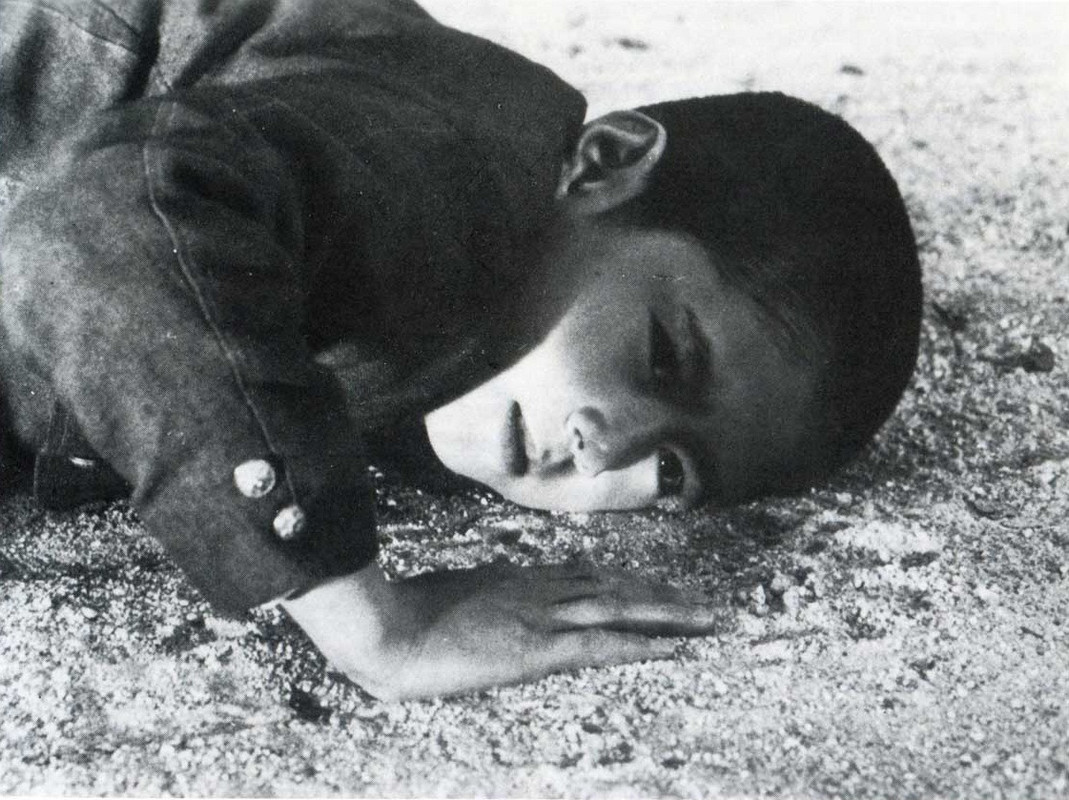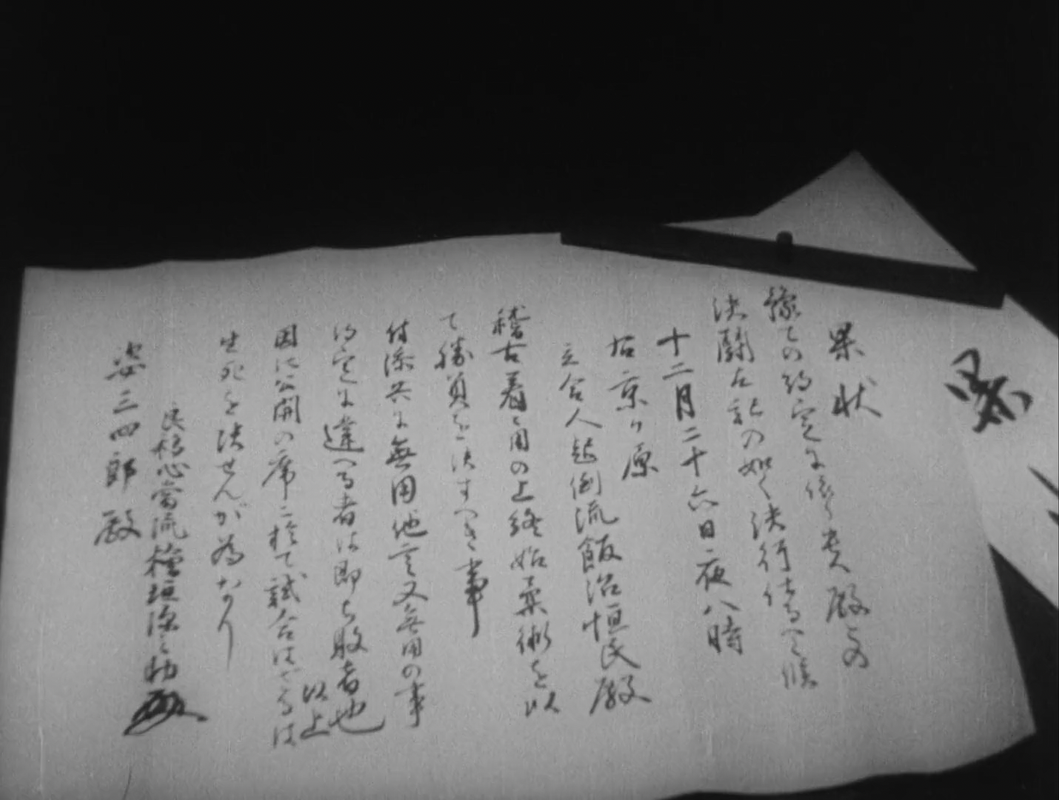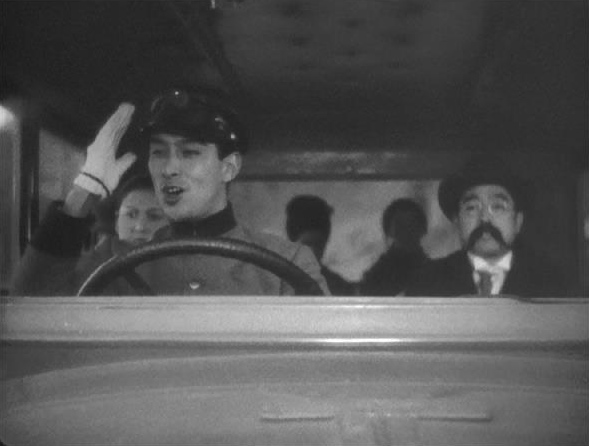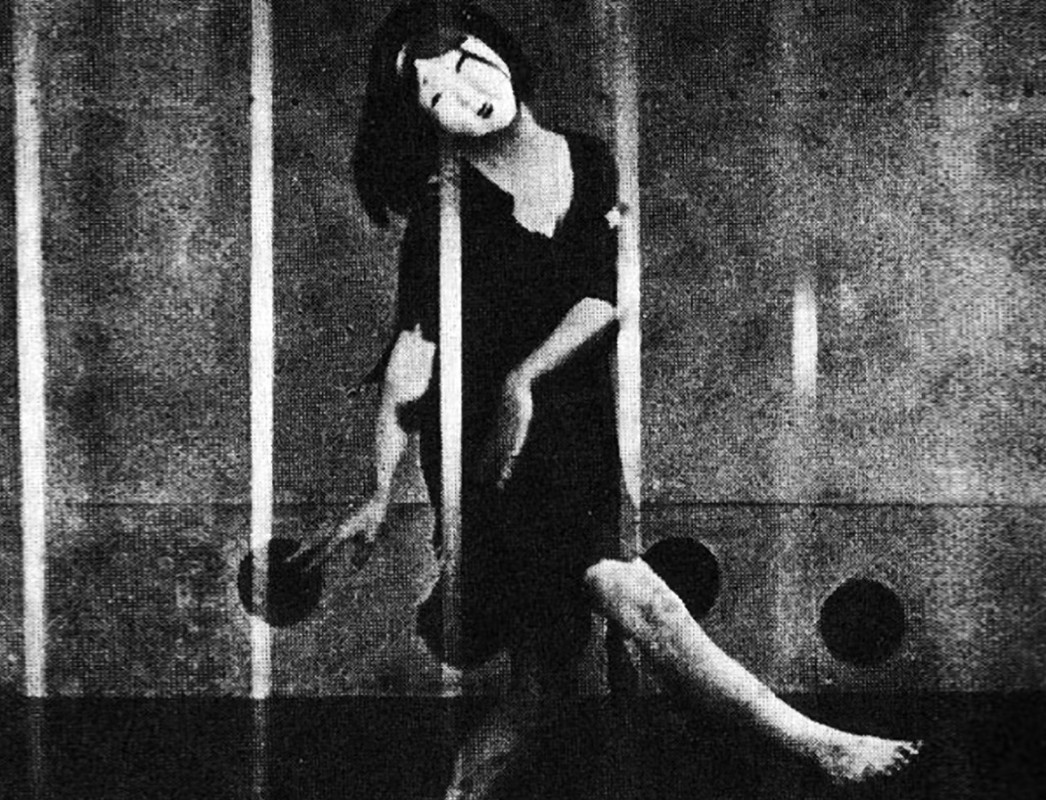儀式 [Gishiki / The Ceremony] (Nagisa Ōshima, 1971)
Jan
1

A boy in school uniform has his ear pressed against the ground. DP: Tōichirō Narushima.
Japan
“On the night of December 26, at 8:00 on Ukyō-ku.”姿三四郎 [Sugata Sanshirō / Judo Saga] (Akira Kurosawa, 1943)
Dec
26
8 p.m.

A letter beckoning to come to Ukyō-ku, on December 26, at 8 o'clock. DP: Akira Mimura.
大佛廻國 [Daibutsu kaikoku / The Great Buddha Arrival] (Yoshirō Edamasa, 1934)
Dec
22
.jpg)
Buddha takes a holiday. A gigantic Buddha statue rests his hand on a multi-story building in possibly Kyoto. In front and sprawling out are multiple small wooden establishments with people in kimono and several bicycles in front of them. A tram, the only thing that suggests the 20th century, can be seen almost off-screen. (via). DPs: Haruzo Ando & Harumi Machii.
Something tall*
In this very early kaiju moving picture, Buddha returns and goes on a sightseeing trip through Japan.
* the Bales 2025 Film Challenge for December has a few dateless themes. This is one of them.
“A geisha’s lie is not a real lie. It’s a cornerstone of our profession.” 祇園囃子 [Gion bayashi / Gion Festival Music] (Kenji Mizoguchi, 1953)
Dec
15
茶
.jpg)
Studying the tea ceremony, accompanied by director Mizoguchi (via). DP: Kazuo Miyagawa.
Having tea*
– Miyoharu
* the Bales 2025 Film Challenge for December has a few dateless themes. This is one of them.
“A scientist is not like a politician who can answer every question.”宇宙人東京に現わる [Uchūjin Tōkyō ni arawaru / Warning from Space] (Kōji Shima, 1956)
Nov
30
1955

The News Herald reports (with the wrong type of headers): “Supreme Headquarters Of The World Council” “Suspend All Activities In Launching Artificial Satellites Until Notice”. DP: Kimio Watanabe.
– Japanese Bar' Ucyū-ken' Madam Ohana
“Arigatō! [Thank you!]” 有りがたうさん [Arigatō-san / Mr. Thank You] (Hiroshi Shimizu, 1936)
Nov
6

Arigatō-san (Ken Uehara) courteously thanks someone who shares the road for giving way. DP: Isamu Aoki.
A movie that makes you want to travel*
– Mr Thank You to everyone – poultry included – he passes on his bus
Friendly and helpful, Arigatō-san (Ken Uehara) is there for his passengers and non-bus travellers alike. A sweet roadmovie from a Japan now lost to time.
* the Bales 2025 Film Challenge for November is, again, not date-based, but follows a sloppy schmaltzy all-American Thanksgiving-y narrative. Trying to make it work my way.
0課の女 赤い手錠 [Zeroka no onna: Akai wappa / Zero Woman: Red Handcuffs] (Yukio Noda, 1974)
Oct
15
1937

Rei (Miki Sugimoto) wielding the long red chain of her handcuffs. DP: Yoshio Nakajima.
狂った一頁 [Kurutta ichipėji / A Page of Madness] (Teinosuke Kinugasa, 1926)
Oct
14
silent cinema

A masked inmate (Eiko Minami) dances. The shot of the dancer is superimposed over a shot of her cel's bars, putting the viewer in the position of the husband witnessing – or is he hallucinating – an inescapable nightmare (via). DP: Kōhei Sugiyama.
A [favourite] silent horror film*
Incomplete and, despite the generally accepted popular Occidental opinion, not a horror film. Oh, to have seen this narrated by Musei Tokugawa…
* the Bales 2025 Film Challenge for October is horror-themed as opposed to date-based, and is all about favourites. Expect non-horror and films I believe to be relevant instead.
“One can meet only god at such hour.”駅 [Eki / Station] (Yasuo Furuhata, 1981)
Oct
12

Eiji Mikami (Ken Takakura) and Kiriko (Chieko Baishō) watching TV in her quiet bar. She sings along with her favourite song. DP: Daisaku Kimura.
Set 278 days before the start of the Tokyo Olympics.
